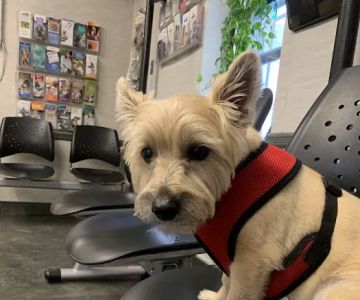- 1-Defining-Who-Is-a-Veterinary-Assistant
- 2-Core-Duties-and-Responsibilities
- 3-Skills-and-Qualifications-Needed
- 4-Real-Stories-from-Veterinary-Assistants
- 5-Career-Paths-and-Growth-Opportunities
- 6-Taking-the-Next-Step-in-Your-Vet-Assistant-Career
1. Defining Who Is a Veterinary Assistant
Understanding who is a veterinary assistant is key to appreciating the vital role they play in animal healthcare. A veterinary assistant supports veterinarians and veterinary technicians in providing medical care, ensuring smooth clinic operations, and comforting animals during their visits.
Unlike veterinarians who diagnose and treat illnesses, veterinary assistants focus on preparing animals for exams, managing equipment, and handling administrative tasks. They are often the first point of contact for pets and their owners, making their role both practical and empathetic.
1.1 The Importance of Veterinary Assistants
Veterinary assistants contribute significantly to the well-being of animals by performing essential support functions. Their dedication helps veterinary clinics run efficiently and enhances the overall quality of care.
2. Core Duties and Responsibilities
The duties of a veterinary assistant are varied and require a combination of technical skills and compassion. Common responsibilities include:
Animal Handling: Assisting in restraining animals safely during examinations or treatments.
Clinic Maintenance: Cleaning cages, sterilizing instruments, and ensuring sanitary conditions.
Client Interaction: Communicating with pet owners, scheduling appointments, and providing basic care instructions.
Assisting Procedures: Supporting veterinarians during surgeries, vaccinations, or laboratory work.
2.1 Balancing Multiple Tasks
Veterinary assistants often juggle several tasks simultaneously, requiring strong organizational skills and the ability to prioritize effectively.
3. Skills and Qualifications Needed
Successful veterinary assistants possess a blend of technical knowledge, interpersonal skills, and a genuine love for animals. While formal education requirements vary, many complete certificate programs or on-the-job training.
Key skills include:
Communication: Clear and compassionate communication with clients and team members.
Animal Care: Basic understanding of animal behavior and medical terminology.
Attention to Detail: Maintaining cleanliness and accurately documenting care activities.
4. Real Stories from Veterinary Assistants
Jessica, a veterinary assistant with five years of experience, shares how her role in a busy animal hospital allowed her to develop strong bonds with both animals and clients. She recounts a memorable case of nursing a rescued dog back to health, highlighting the emotional rewards of the job.
Another assistant, Mark, emphasizes the importance of teamwork and continuous learning, noting that every day brings new challenges and learning opportunities in the veterinary field.
5. Career Paths and Growth Opportunities
Starting as a veterinary assistant can lead to various career advancements, such as becoming a veterinary technician or pursuing veterinary school. Many assistants leverage their experience and education to specialize in areas like exotic animal care or laboratory work.
Ongoing training and certification enhance job prospects and professional growth.
6. Taking the Next Step in Your Vet Assistant Career
If you’re curious about who is a veterinary assistant and interested in pursuing this rewarding career, exploring accredited training programs and gaining hands-on experience are essential first steps.
Investing in quality educational resources and practical tools designed for veterinary assistants can accelerate your journey. By equipping yourself with the right knowledge and skills, you set the foundation for a successful and fulfilling career in animal care.












